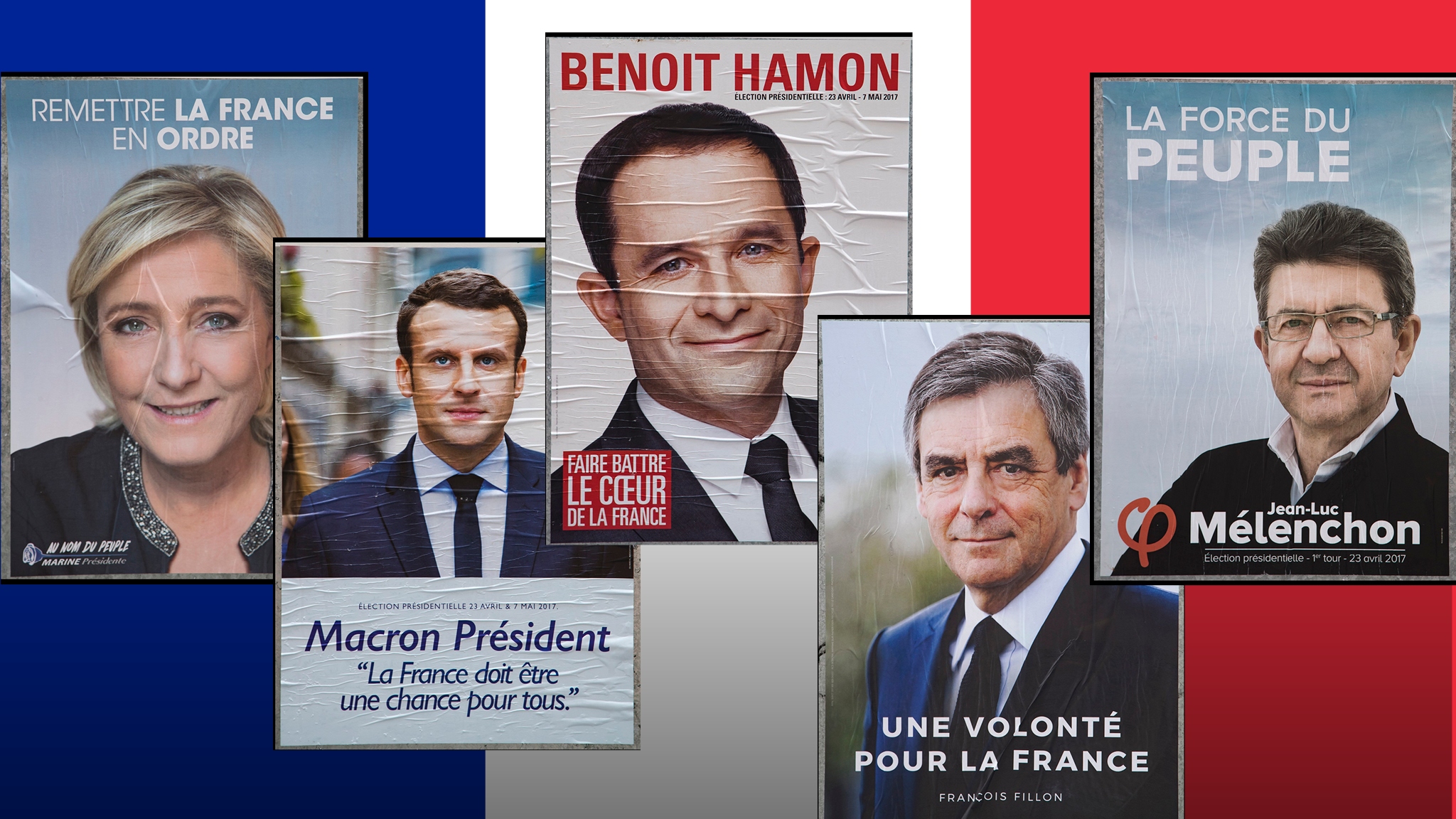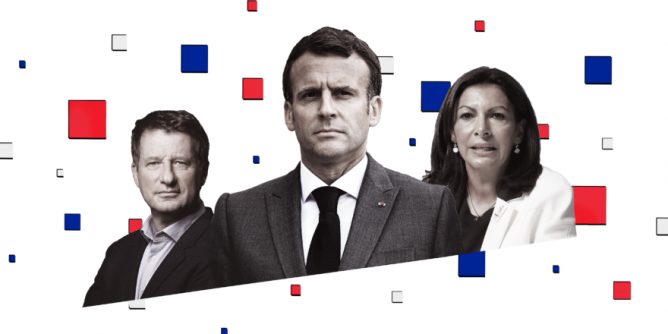Tag: france presidential elections 2022 polls
France presidential elections: All you need to know
France presidential elections: Next month, about 48 million eligible French voters will be asked to choose who will govern the nation for the next five years.
Never before in the history of the Fifth Republic founded by Charles de Gaulle in 1958, a presidential election has been held in such a dramatic and volatile context.
After 2 yrs of the once-in-a-century pandemic, the weather emergency, and today the Ukraine war the very first invasion on European soil because of the finish of The Second World War? voters will need to decide whether or not they give President Emmanuel Macron another chance or change course in a more radical way.
Here are some of the main things to know:
When are the elections?

Elections in France are held every Sunday. The very first round of the year’s presidential elections is going to be held on April 10. The very best two candidates will face one another off in a second-round on April 24.
Who are the candidates?
To become permitted to operate for president, France presidential elections candidates have to receive 500 sponsorships from about 42,000 elected officials.
Sponsorships needed to be certified through the Constitutional Council France’s Top Court by March 4.
Twelve candidates have managed to gather enough of them to qualify:
- Nathalie Arthaud (Lutte Ouvrière – anti-capitalist)
- Nicolas Dupont-Aignan (Debout la France – right)
- Yannick Jadot (Europe Ecologie Les Verts – green)
- Anne Hidalgo (Parti Socialiste – socialist)
- Jean Lassalle (Résistons – independent)
- Marine Le Pen (Rassemblement National – far right)
- Emmanuel Macron (La République en Marche – centrist)
- Jean-Luc Mélenchon (Union Populaire – radical left)
- Valérie Pécresse (Les Républicains – conservative)
- Philippe Poutou (Nouveau Parti Anticapitaliste – anti-capitalist)
- Fabien Roussel (Parti Communiste Français – communist)
- Eric Zemmour (Reconquête – far right)
What are the main issues?
Before the invasion of Ukraine by Russia on Feb 24, there is an overall feeling among voters that candidates weren’t speaking concerning the issues they thought about probably the most purchasing power and the cost of just living, healthcare, and fighting against global warming.
Rather, most debates centered on the divisions inside the left, the quantity of an inheritance tax (under a quarter of France they taxpayers owe it), and also the names people ought to be giving to their children.
The war in Ukraine has put at the center of the debates exactly what the candidates propose with regard to vital issues, France presidential elections stated Laure Cometti, an experienced political journalist.
They’ve had to speak about the way they would cut France’s and also the European Union’s reliance upon Russian energy and food supplies? which bears the issue of methods to decarbonize the economy in addition to how you can safeguard the nation, potentially with an EU army.?
What are the polls saying?
For several weeks now, each and every poll has predicted Macron will face far-right Marine Le Pen within the second round on April 24. The most recent salvo states exactly the same.
Cevipof ? the center for political research of Sciences Po Paris continues to be performing probably the most thorough moving study from the electorate because of a 13,749 strong sample group.
In the past France presidential elections, its margins of error are actually really small, under 1 %, hence its reliability.
The most recent study (PDF), conducted between March 10 and 14, predicted the next distribution of votes:
- Emmanuel Macron – 29 percent
- Marine Le Pen – 16 percent
- Eric Zemmour – 13 percent
- Jean-Luc Mélenchon – 12 percent
- Valérie Pécresse – 10.5 percent
- Yannick Jadot – 7 percent
- Fabien Roussel – 4 percent
- Anne Hidalgo – 2.5 percent
- Jean Lassalle – 2 percent
- Nicolas Dupont-Aignan – 2 percent
- Philippe Poutou – 1.5 percent
- Nathalie Arthaud – 0.5 percent
Within the likely event of the second round between Macron and Le Pen, the sitting president would defeat her far-right challenger 59 percent to 41 percent, which is a much thinner margin compared to 2017 as he beat her 66 percent to 34 percent.
Macron on the rise
Macron continues to be leading the polls for a long time now, having a steady base of a 24-a quarter of the electorate intending to the election for him within the first round. An abnormally high score for any sitting French president.
Emmanuel Macron, because of his pro-European and progressive message has been able to secure voters in the center-left who are accustomed to elections for the Socialist Party. Economically, he’s implemented pro-business policies to seduce voters on the right,? stated Hugo Drochon, professor of political theory at the College of Nottingham.
?Consequently, a brand new divide has emerged between your center and also the extremes. That’s hurt traditional parties both around the left as well as on the best,? he stated.
Therefore, in the past low polling of conservative Pécresse and socialist Hidalgo, who find it difficult to reinvent their parties? messages considering global warming, digitalization, and globalization.
In France, The president, who has additionally been presiding over the ECU Council since The month of January, is benefitting politically in the war in Ukraine: the famous “rally-around-the-flag effect”. Lucrative polls at 29 percent, a 5-point begin in regards to a month.
No other candidate is considered qualified enough to perform a better job than him, with 61 percent of the voters having faith in the 44-year-old leader to help make the right choices with regard to the Ukraine war.
He’s more and more seen as a protecting estimate uncertain occasions and the longstanding pro-EU message resonates more noticeable nowadays as 32 percent of voters repeat the war in Ukraine will impact their choice.
?The current context plays towards Macron,? stated Cometti. ?People have credited him for his handling of the pandemic and all sorts of money he put into the economy to help keep it afloat “whatever the cost”. The advantages of being already in control and individuals knowing he is able to run a crisis.?
Shifting dynamics
Le Pen, the historic far-right figure running for any third time, seems once more to become Macron’s most serious challenger.
Although polls have frequently proven through the years that French people don’t want to visit a rematch from the 2017 elections, it’s the menu they will probably be offered with.
Her persistent message on purchasing power the main concern for voters this season, made much more significant through the effects of the war in Ukraine appears to become working, especially of the working class.
She also now advantages of the candidacy of populist Eric Zemmour, after he posed a really serious threat to her this past year when polls had him in front of her last November.
But Zemmour’s rage against Muslims, ladies, and immigrants makes her seem like a far more reasonable candidate, while they share similar views and concepts.
And also the former journalist’s lengthy-established popularity with Russia’s Vladimir Putin has additionally cost him recently.
?Dramatic occasions like wars weaken candidacies that have small political capitals. Zemmour is really a newcomer in politics and he’s designed a terrible mistake by saying he’d require Ukrainian refugees. That made him look heartless,? stated Bruno Cautrès, a political investigator at Sciences Po Paris.
The last hope of the left
Seen by many people because of the last hope of the left-wing camp, Jean-Luc Mélenchon defines themself as being an “electoral turtle”.
Presently polling about 12 %, he’s seen a boost in the polls recently and wishes to pull exactly the same move as in 2017, as he went from 14 % to 19 percent within the last couple of days from the campaign.
But now, he’s facing multiple left-wing candidacies which will likely prevent him from qualifying for that second round.
Therefore, the message he’s been hammering: “I am the efficient election around the Left”
On March 20, he collected thousands of his supporters in Paris’s Bastille Square for any “march for that sixth Republic”, France’s presidential elections were certainly one of his key proposals to alter the political system.

Recent Comments